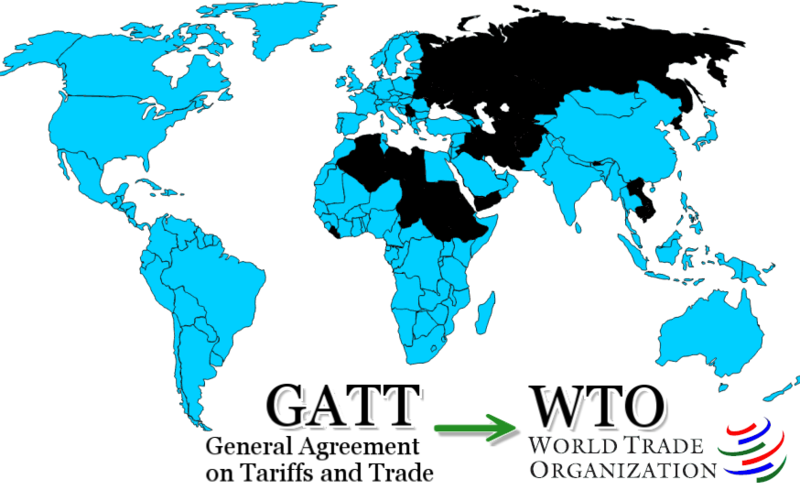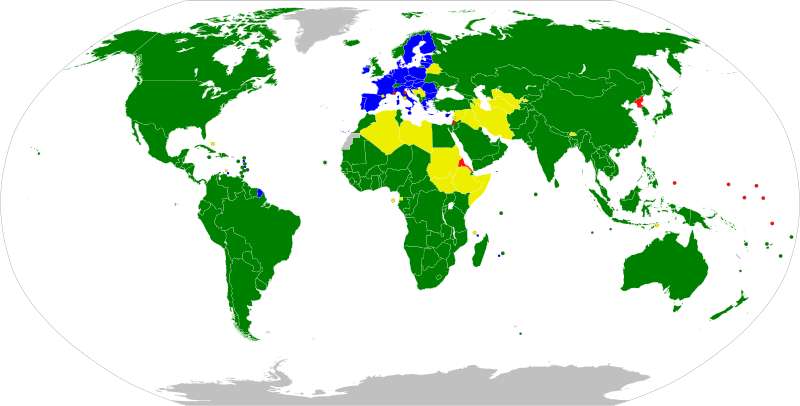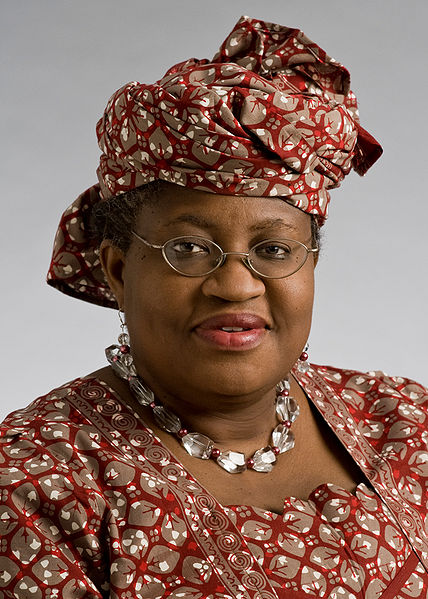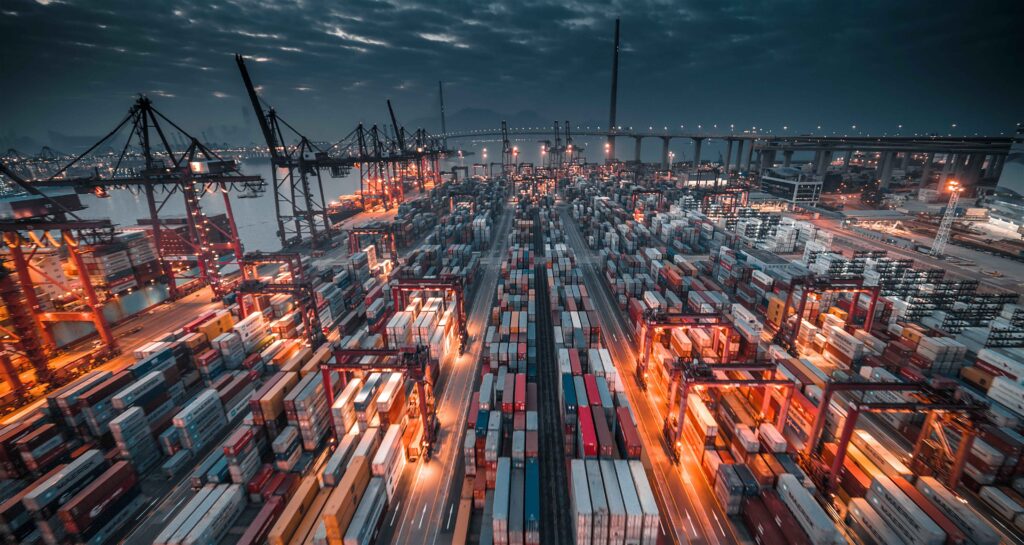WTO – Body responsible for overseeing the rules of international trade.
Established in 1995
Headquarters are in Geneva, Switzerland
164 members
WTO has introduced a new World Trade Outlook Indicator (WTOI) to provide real-time information on Trends in global trade
The highest decision-making body of the WTO is the Ministerial Conference, which usually meets every two years.
Purpose of WTO
The volume in international trade has become so big that it has become imperative to create an institution that can establish a rule of law in international trade. WTO provides a platform for the settlement of the dispute otherwise, the alternative is war.

WTO is the successor to GATT (General Agreement on Tariffs and Trade) GATT is just a set of treaties, whereas WTO creates institutions. Coverage of GATT was limited to trade of goods, whereas WTO has included trade in services, IPR (Intellectual Property Rights), agriculture, and textile.
Philosophy of WTO
It is based on the philosophy of free trade i.e neoliberalism. The theory of free international trade is based on the theory of comparative advantage given by Ricardo.
What is comparative advantage theory?
It suggests that one should go for producing where one can be most efficient and to import from those which are efficient at their work. It will have multiple benefits. It will develop interdependence, the best utilization of resources, more economic growth as it will provide for a bigger market.
Institutions of WTO
1. Ministerial Council – Highest decision-making body
2. General council – It is like a secretariat
3. Dispute Settlement Body
4. Trade Policy Review Board
WTO Principles
The objective is to create free trade. To make boundaries irrelevant.
The important WTO principle is “trade without discrimination” which includes MFN (Most favored nation) status and national treatment.
According to MFN, a trade concession granted to one WTO member should automatically apply to all other members.
National Treatment guarantees that both domestic and foreign suppliers must be treated equally.
WTO Procedure
The decision is by consensus.
WTO has two types of agreements- Multilateral and Plurilateral
WTO is of special significance for developing and smaller countries. The reason is that they have equal power with respect to decision-making. It is better because on their own they will not be able to bargain. Besides, WTO also links trade with development.
WTO Agreements
Agreement on agriculture
Agreement in goods
Agreement in services
Agreement in IPR
Agreement in Investment Measures (TRIMS)
The present agreements are the outcomes of 8 rounds of talks known as the Uruguay Round of talks.
Finally, WTO came into existence in 1995.
Analysis of working of WTO
Within few years of its existence, the negative consequences of WTO principles became evident. It resulted in the rise of the counter-movement led by public intellectuals and civil society groups, for example against the Global Economic forum emerged World Socialist Forum. Even liberal scholars became critical because of the lack of inclusive and balanced growth.
Why WTO agreements have resulted in an adverse impact on developing nations?
At the time when the Uruguay round of talks was taking place, developing countries had limited experience in trade talks and lacked legal expertise to understand the complex agreements. They failed to understand the consequences of the agreement they have entered into. Now developing countries insist on revising the trade agreements.
It was not even possible to conduct the meetings of WTO, and that is why members of the WTO had to acknowledge the primacy of development over trade. Thus emerged Doha Development Round in 2001.
It is to be noted that the Doha round of talks is a development round rather than trade. However, developed countries have been trying to give priority to trade over development.
But in the Nairobi ministerial meet in 2015, developed countries had insisted that new approaches are needed to have any meaningful multilateral talks. There is no formal collapse of the Doha round but an effective collapse of the Doha round of talks at Nairobi.


Factors affecting WTO today
-New areas to be covered such as E-commerce.
-Developing nations concerns with more knowledge.
-The trade war between China and the USA shows indiscriminate imposition of tariffs that are inconsistent with the WTO rules. It has dented WTO credibility.
-Since the pace of negotiations is slow in WTO, countries are forming new trading regimes like RCEP.
-Due to COVID19, countries are forced to impose export bans and restrictions. It can result in trade disputes in the future.
-Moreover, global tendencies are shifting towards de-globalization and reverse globalization. WTO may experience some change too.
WTO is important for developing countries especially, smaller countries.
International Trade of WTO members now exceeds 90% of the global trade. WTO has played a key role in tariff reduction. Despite achievements, WTO has often been criticized on the grounds that it interferes with national sovereignty.


For the comprehensive report on international organizations of the world – click here.

2 comments
Thanks for sharing
Superb!!
Comments are closed.